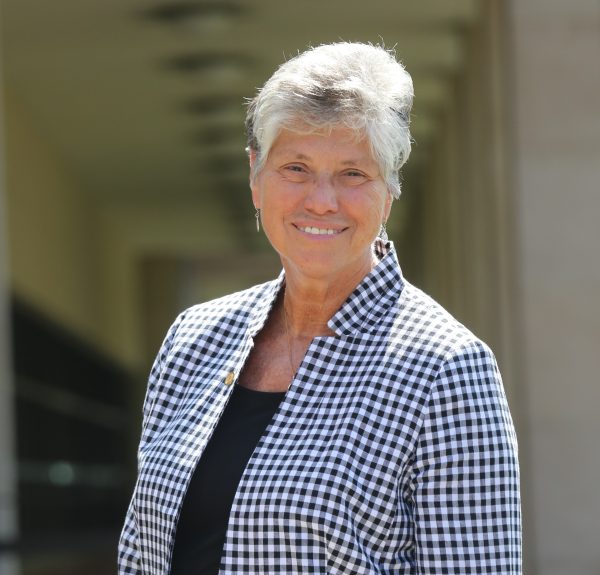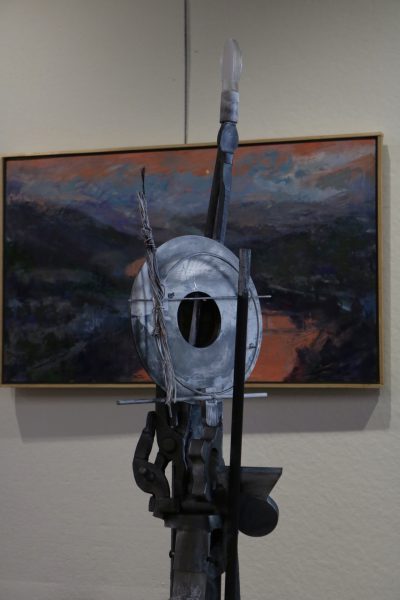SRA One Year Later: Entities requiring further study
March 7, 2018
The Wood Word examined the items listed in the SRA report to see what changes have taken place in the last year. The second article of a three-part series focuses on items labeled as requiring further study that were included in the report.
The SRA report, which was released in in the fall of 2016, listed entities such as the core curriculum, Learning Commons, library services and counseling and student development center as entities requiring further study.
The Wood Word examined these items labeled as “requiring study” in the SRA report.
Core Curriculum
The SRA report recommended an in-depth study of the core curriculum during 2017.
According to the report, the study required the curriculum to “change to reflect current trends in the delivery of core curriculum.”
The Core Curriculum Revision Task Force proposed a new model that Committee Co-Chair Dr. Helen Bittel described as more integrative and allows students to make connections between different programs.
According to Persico at the end of the fall 2017 semester, if the core curriculum changes have a positive result, she said she feels this is one of the best recommendations from the SRA report.
“I think it’s exciting the way it integrates all of the areas into the professional studies an individual student is taking up,” said Persico.
The Undergraduate Core Curriculum Committee voted on Feb. 2 of this year to approve the proposed changes and Provost Dr. Susan Turell approved the new curriculum. It will be implemented in fall 2019.
Learning Commons and Library Services
The SRA report listed the Learning Commons and library services in the requiring further study category. As recommended by the SRA report, the university completed an in-depth study of these entities.
The study required completion of surveys about the use of the Learning Commons, as well as information on cost savings measures and a plan for streamlining staff.
Library Director David Schappert said the library staff learned things about the building that they may not have known through the completion of surveys.
“The sense from users is what we thought was working, was working,” he said.
Additionally, academic support offices moved from the Liberal Arts Center to the Learning Commons.
Schappert said moving the offices was not a recommendation of the SRA report, but something that came out of the in-depth study.
“I think it was important to take a look at the building and how people are using it in different ways,” Schappert said.
The report recommended certain library staff positions be eliminated. Schappert confirmed the assistant director of sponsored research, the director of sponsored research, coordinator of the education curriculum lab and the senior director of institutional research have been eliminated.
Additionally, the report recommended certain positions to be added including the director of professional continuing education and an institutional data specialist, which Schappert said have been filled.
With the addition and elimination of these positions, Schappert said responsibilities changed and there was a restructuring of library staff positions. With these changes, some individuals from the eliminated positions retained their jobs in the new positions.
Persico said she is happy with the study of the Learning Commons and thought it was helpful.
“We were able to revamp some of the services that are provided by the personnel that work in the library, so we expanded what they do to include different work with the students because they got to take a look at things from a different perspective,” Persico said.
Counseling and Student Development Center (CSDC)
The SRA report recommended a study of the CSDC, which the center completed at the end of the spring 2017 semester.
The results of the study, according to the report, are to have a clearer understanding of the purpose of the center and its relationship to other student services.
Additionally, the study explored improved business practices and the consolidation of similar services on campus.
Dr. Robert Shaw, director of the CSDC, said changes in staffing were the principal results from the SRA study.
In the spring 2017 semester, the CSDC lost four seasonal, part-time employees. However, in the fall of 2017, the CSDC added a full-time position that had not existed before. Additionally, the center rehired two of the four employees who were terminated at the end of the spring for part-time positions.
“What followed for the new fiscal year is while there were a bunch of part-time positions that were discontinued, there was a full-time position added and that’s been a very good thing,” said Shaw at the end of the fall 2017 semester.
Follow The Wood Word for more information on the impacts of the SRA report in the final installment of SRA One Year Later.
Contact the writer: [email protected]
Twitter: @RLookerTWW















